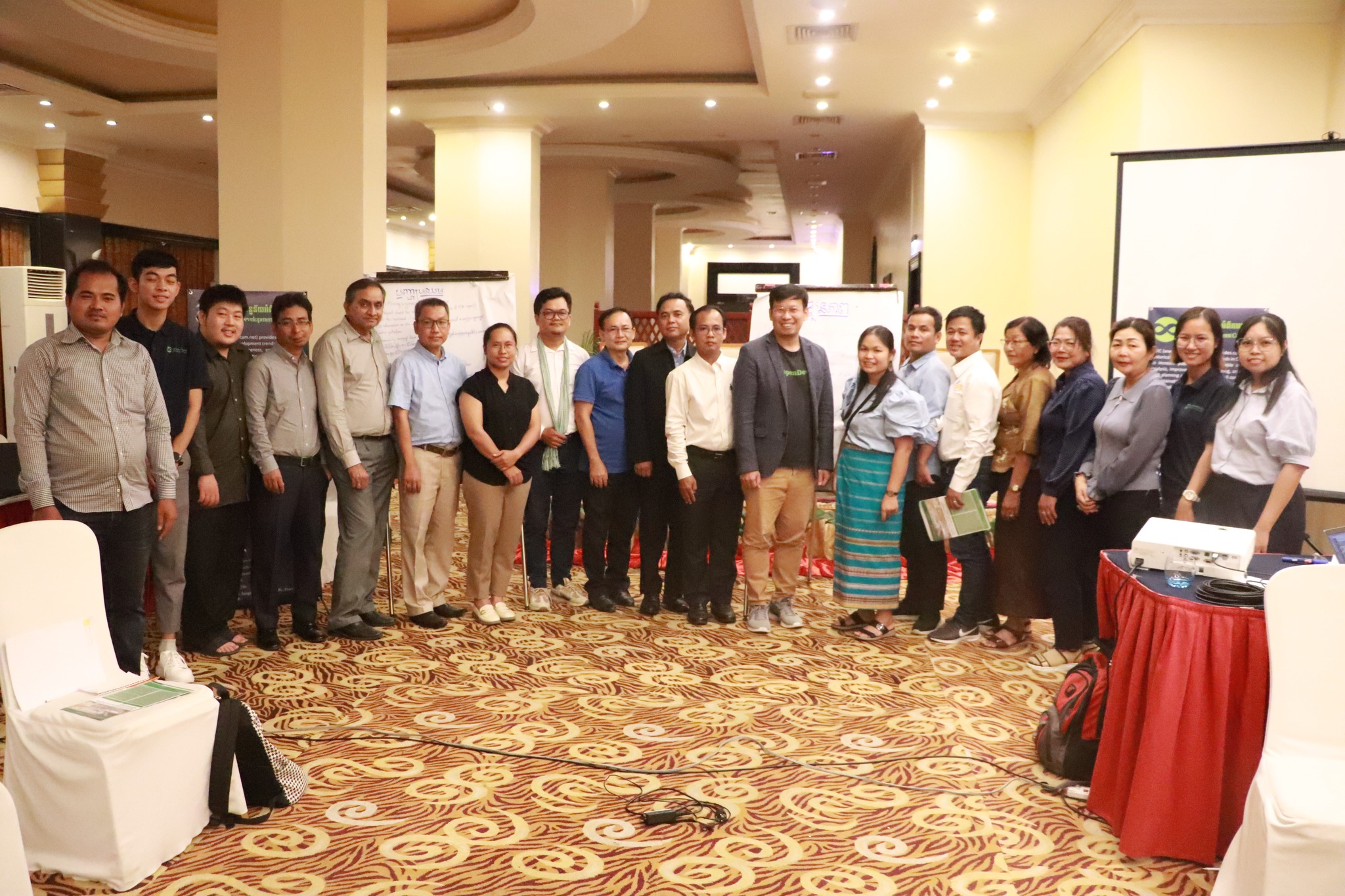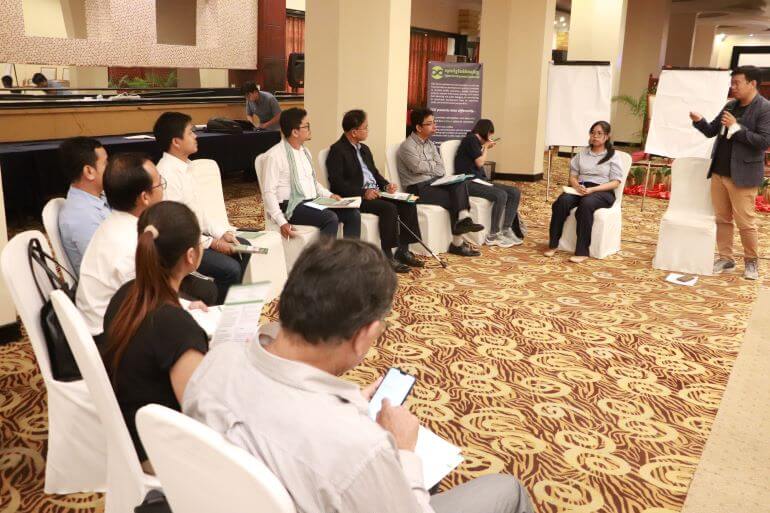Launching workshop on public revenues from the extractive industries profile page
On 24 May 2023, Open Development Cambodia (ODC) officially launched the workshop on Public Revenues from the Extractive Industries profile page. The event brought together 21 participants (eight women) who are representatives from various relevant institutions in extractive industries, including Civil Society Organizations (CSOs), Community-Based Organizations, and the government.

The Swedish Program for ICT in Developing Regions (SPIDER) provides funding support for the Tracking Public Revenues from Extractive Industries in Cambodia project carried out by Open Development Cambodia (ODC). Through data transparency, this project aims to improve citizens’ and relevant stakeholders’ access to centralized, trustworthy data on extractive industry revenues, thereby increasing citizen awareness and government accountability.
The workshop’s primary objective is to launch ODC’s interactive profile page on extractive industry revenues, which provides information in various formats: tables and datasets, infographics, and data visualizations, and to bring relevant stakeholders together to discuss revenues from extractive industries.
ODC’s interactive profile page was established due to the rise of revenues and increased discussion in extractive industries. It benefits the local communities to understand the revenues generated from extractive industries and encourages them to debate publicly, along with the accessibility of the potential public data.
The event has four main objectives:
- Present the data, information, and features of the new profile page;
- Raise awareness about the current information landscape on revenues from extractive industries in Cambodia;
- Promote public debates on revenues from the extractive industry by raising awareness among elegant stakeholders about the potential of public data to enhance transparency and accountability in the extractive sector;
- Encourage further collaborations between relevant stakeholders – including the Government, CSOs, and journalists.

By welcoming the event, Mr. THY Try, Executive Director/Editor-in-Chief of ODC, gave a pleasant reception by explaining how segregated this workshop is from the main workshop. He also requested the participants to share their organization’s experience dealing with data and information regarding the extractive industries. In turn, he would like to share a research finding on Cambodia’s extractive industries conducted by university students through a video recording and a new profile page on the revenue and expense that ODC teams will present.
The students from Wisconsin University presented their research on increasing transparency in the extractive industries in Cambodia. They addressed four main research questions:
- Revenue requirements
- Estimated revenues
- Estimated Vs. Reported revenues
- Policy options
The presentation touched on several important regulatory frameworks in the extractive industries, including the Law on the Mineral Resource Management and Exploitation of Mineral Resources, Sub-Decree No. 72 on Management of Exploration and Industrial Mining Licenses, and other regulations as well the key revenue streams, including tax revenues and non-tax revenues.
For data analysis, there are limitations specifically on information accessibility, like accessible information was deficient in assessing results and data reliability.
By comparing four-year ranges on various surface rental fees, the illustration focuses on an estimation scenario between revenues from license and non-license fees. By contrasting royalties with and without a revenue split, they later demonstrated the anticipated revenue from royalties in 2021. Also, the reported revenue is reasonable, yet the estimation is highly uncertain.
Before closing their presentation, they highlighted three recommendations below:
- Ministry of Mines and Energy (MME) website improvements (Difficulty accessing documents, press release updates to foster community, and digital government policy)
- Clarification of concessions process (Number of active licenses and size of each concession with applied rate)
- Extractive Industries Transparency Initiative (EITI) membership and compliance (Transparency and oversight, civil participation and accountability, global networking and investment).

After that, Ms. OURN Vimoil, Program and Partnership Manager at ODC, began her presentation by demonstrating a new profile page on public revenues from extractive industries on the ODC website to the audience.
Ms. Vimoil also added that ODC had collected data from public domains, legal documents, Environmental Impact Assessment (EIA) reports, companies’ websites, and news articles, although facing challenges of inaccessible data. Despite the limited information, it would help people understand how the industry is currently doing and how businesses contribute to tax revenues and other environmental and social funds.
In Addition, Ms. Vimoil mentioned data visualization depicting the industry’s contribution to the national GDP from 1998 to 2021 can be found on the profile page. Regarding the revenue, it has kept increasing since then until nowadays. Besides we also obtained mining and oil concession revenue data after requesting the Ministry of Economy and Finance. After the presentation, questions were raised regarding a definition and how the government collects royalties from mining companies. A Ministry of Economy and Finance (MEF) representative also participated in the discussion. He explained that royalty is non-tax revenue paid to the government by mining companies on the amount of mineral produced or the revenue generated by the mineral sold as stated in the Inter-ministerial Prakas no. 760 on royalty rates on mineral products and royalties payment procedures.

More notably, the discussion explores challenges and solutions in the extractive industries. It was debated over the lack of information related to the mining projects and the limited capacity of local authorities to request mineral funds for local community development.
At the end of the discussion, the participants encouraged the government to approve the Law on Access to Information and EIA Law and the Ministry of Posts and Telecommunications to release a Policy on Open Data.

